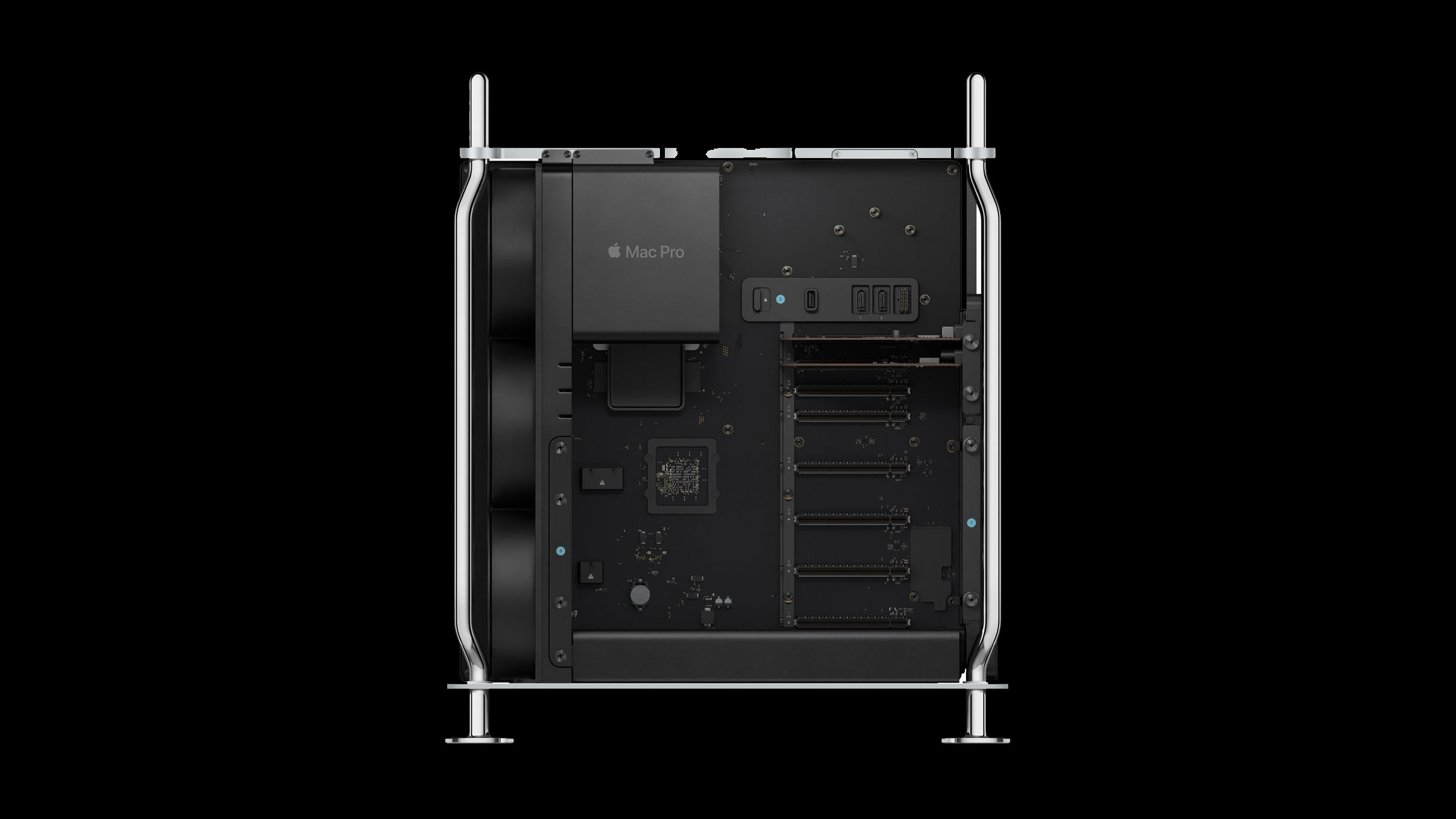
Apple announced the new Mac Pro powered by its M2 Ultra processor at WWDC23. It launched in stores this week, and there's already a bug in the wild. In a support document, Apple disclosed a software bug with the Mac Pro where internal SATA drives would be disconnected when the computer goes to sleep. Apple has a fix on the way, but it won't arrive until the next macOS update.
The 2023 Mac Pro starts with 1TB of solid-state storage on the $6,999 base model. However, they can spec the machine for up to 2TB, 4TB, or 8TB for an added premium when purchasing the Mac Pro from Apple's website, or they can purchase upgrade kits directly from Apple. They don't come cheap, though. The 2TB, 4TB, and 8TB kits retail for $1,000, $1,600, and $2,800, respectively. These are not off-the-shelf SSDs (they actually work more like NAND and connect to the controller on the M2 Ultra) and can be pricey. Luckily, the device provides two standard SATA III ports, opening the doors for mainstream secondary storage options. The Promise Pegasus J2i 8TB Internal Storage Enclosure, which sells for $400, allows consumers to use conventional SATA hard drives or SSDs that are more budget-friendly. That's precisely where Apple found the nasty bug.
When owners wake their Mac Pro from sleep, they may be greeted by a "disk not ejected properly" window as if the SATA drive is ejected like a flash drive. The reason for the prompt is that some hard drive models would automatically disconnect from the device when the Mac Pro goes to sleep. However, Apple didn't provide a list of the affected drive models, only listing that it happens to "certain models of internal SATA drives". The issue can occur whether the Mac Pro enters sleep mode automatically or when consumers manually put the device to sleep.
Apple's current stopgap solution is for users to restart their systems when the problem occurs. It is also recommending that Mac Pro owners disable sleep mode. The option is called "Prevent automatic sleeping when the display is off," and is located in the advanced section of the Displays options under System Settings. In other words, you're better off never going to sleep, or shutting your Mac down entirely, to prevent the issue.
Fortunately, it's not a hardware issue. The problem resides on a software level, which Apple can mitigate through a macOS update. Apple will include the fix in the next macOS update for Ventura (probably macOS 13.4.1) but didn't provide a specific ETA. Until then, Mac Pro owners may want to avoid sleep mode if they have incorporated hard drives into the system.
This issue is particularly interesting because the new Mac Pro is the first time Apple is allowing user-added storage inside a system since Apple silicon released for Mac. (It's not available in the MacBook Air, MacBook Pro, iMac, Mac Mini, or Mac Studio).







